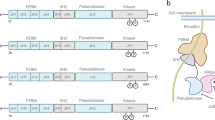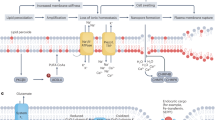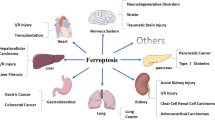Abstract
The KIT protein is a receptor tyrosine kinase of the platelet derived growth factor (PDGF) receptor family which regulates haematopoiesis, melanogenesis and gut and germ cell development. KIT regulates these diverse processes, at least in part, by inhibiting apoptosis. We have previously found that KIT can suppress p53-mediated apoptosis. The mechanism by which KIT suppresses apoptosis is, however, uncharacterized. Neither is it clear how p53 induces apoptosis. In this report we find that p53-dependent apoptosis proceeds through a pathway involving depolarization of the mitochondrial electropotential gradient (ΔΨm) and the generation of reactive oxygen species (ROS). KIT activation suppresses p53-induced apoptosis in the mouse DP16 Friend erythroleukemia cell line by preventing ΔΨm depolarization and ROS generation. Thus, the KIT kinase prevents apoptosis by regulating mitochondrial function and cellular redox state.
This is a preview of subscription content, access via your institution
Access options
Subscribe to this journal
Receive 50 print issues and online access
$259.00 per year
only $5.18 per issue
Buy this article
- Purchase on Springer Link
- Instant access to full article PDF
Prices may be subject to local taxes which are calculated during checkout
Similar content being viewed by others
Author information
Authors and Affiliations
Rights and permissions
About this article
Cite this article
Lee, J. Inhibition of p53-dependent apoptosis by the KIT tyrosine kinase: regulation of mitochondrial permeability transition and reactive oxygen species generation. Oncogene 17, 1653–1662 (1998). https://doi.org/10.1038/sj.onc.1202102
Received:
Revised:
Accepted:
Published:
Issue Date:
DOI: https://doi.org/10.1038/sj.onc.1202102



